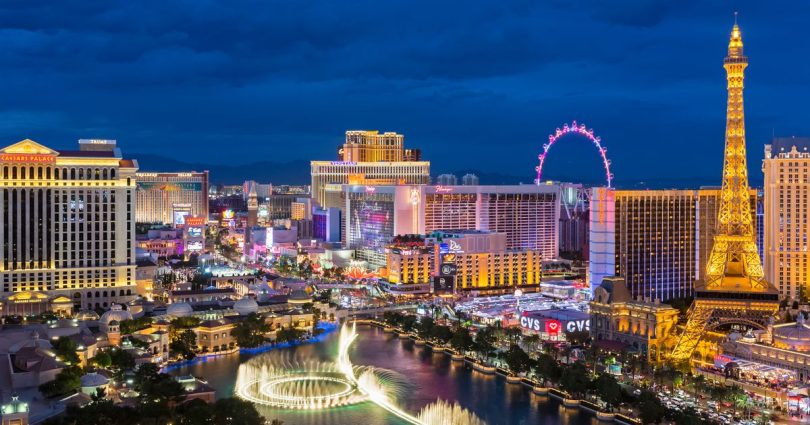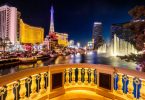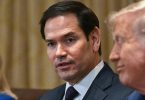Locals have jokingly referred to the famous Las Vegas strip as a ghost town as tourists stay away in their droves
Las Vegas is facing a stark slowdown this summer as tourists sharply pull back amid soaring costs, with reports suggesting tourists are turning their back on Trump’s America.
Official figures show hotel occupancy plummeting by 6.5%, while visitor arrivals dipped over 11% in June, compared to last year. Even Harry Reid International Airport saw traffic fall by around 4%, underscoring a broader downturn across the city.
And many are blaming the cost. Travelers are balking at jaw-dropping price tags for once-routine expenses.
Visitors report paying $9 for a cup of coffee, $100 for buffets, and even $279 for VIP movie packages in the Sphere Experience. Combined with hidden resort fees and pricey hotel stays, room rates are down slightly to an average of $163.64 but still remain steep, the rising costs have many regulars declaring, “Vegas is not fun anymore,” according to Market Watch.
READ MORE: Trump’s ‘creepy’ comment over Karoline Leavitt’s ‘machine gun lips’ leaves viewers uneasyREAD MORE: Karoline Leavitt’s ‘conscious shift’ in wardrobe after South Park ridicule
And locals have reportedly compared the Strip to a ghost town. Social media posts depict nearly empty lobbies and casinos, ominous scenes for a city built on high-stakes excitement.
Hospitality workers report tip incomes halved due to the decline, despite recent no‑tax tip legislation.
With approximately 300,000 Vegas residents in hospitality roles, many are worried about job security as discretionary spending evaporates.
Meanwhile, international tourism, particularly from Canada, has sharply contracted, believed to be driven in part by strained diplomatic relations and rising visa-related expenses. Canadian visitors to Vegas have fallen by nearly 20%, contributing significantly to the economic strain.
Analysts warn that unless pricing strategies shift, the message to middle-class travelers is clear: Las Vegas has become prohibitively expensive.
Despite the grim forecast, some downtown and off‑Strip venues are seeing modest gains as visitors are choosing budget-friendly show halls and hotels without resort fees.
But as the Strip locks into a luxury pivot with high-end packages and celebrity residencies, the city risks alienating the very crowds that once made it an American icon.
Over the past few years, the iconic Strip has quietly traded its reputation for affordable entertainment for a more upscale identity in an attempt to attract more affluent clientele.
Classic value-driven resorts are giving way to grand, sleek properties like the soon-to-be-opened guitar-shaped Hard Rock Las Vegas, set to replace the iconic Mirage in 2027, and recent openings including the $3.7 billion Fontainebleau and the technologically advanced Resorts World Las Vegas.
Such Casinos and resorts are investing heavily in AI-powered concierge services, digital personalization, and VIP-driven group travel, hoping to replace volume with value-driven exclusivity.
Some locals lament that the Strip’s embrace of luxury has come at the expense of its former accessible charm, arguing that Vegas feels like a corporate money trap, not the bargain paradise it once was.











